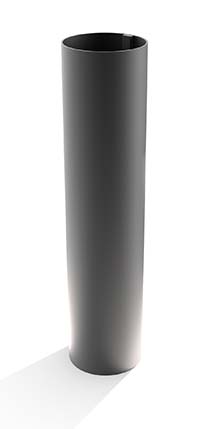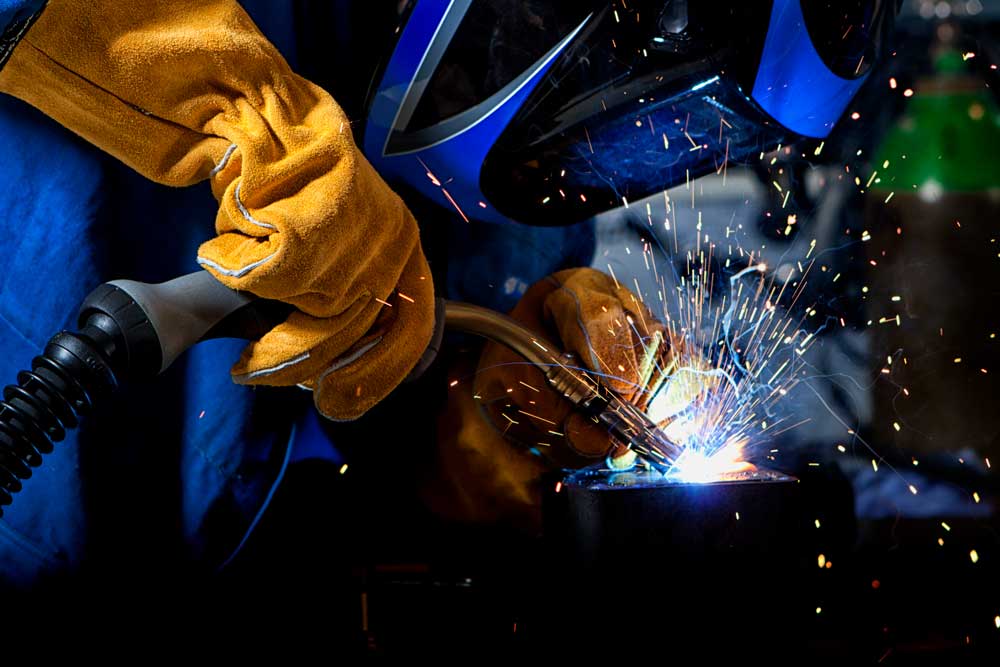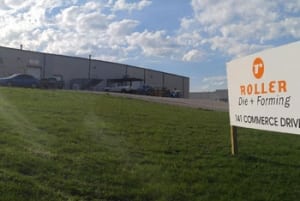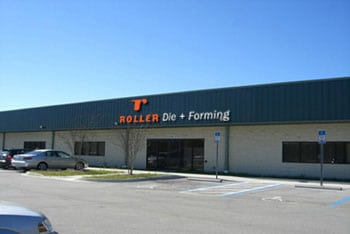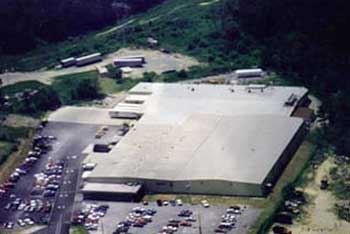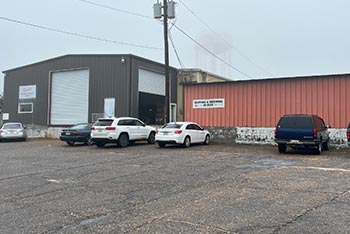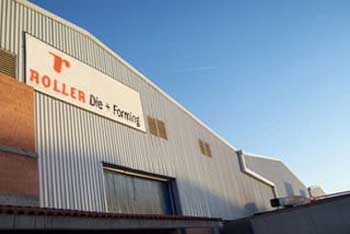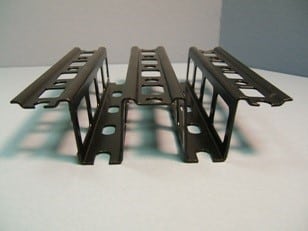In an era where sustainability has become a global imperative, industries worldwide are re-evaluating their manufacturing processes to minimize their environmental impact. Among the many eco-friendly practices gaining traction, custom roll forming stands out as a transformative technology that enables manufacturers to achieve impressive environmental outcomes.
Custom roll forming is a metalworking process that shapes metal coils into complex profiles using a series of precision-engineered rollers. Unlike traditional manufacturing methods, which often generate significant waste and consume substantial energy, custom roll forming offers a greener alternative.
With that in mind, we’ll delve into the rise of green manufacturing and explore how custom roll forming contributes to eco-friendly practices. Read on as we explore how custom roll forming is revolutionizing the manufacturing industry and paving the way for a more sustainable future.
Reducing Environmental Impact with Custom Roll Forming’s Resource Efficiency
Custom roll forming offers unparalleled resource efficiency, significantly reducing the overall environmental impact of the metal fabrication process:
1. Material Optimization: Custom roll forming processes ensure that materials are used optimally, minimizing waste and promoting sustainability. With its precise configurations and flexibility, custom roll forming enables manufacturers to employ thinner and lighter steel components without compromising on performance and structural integrity.
2. Reduced Energy Consumption: Custom roll forming requires less energy compared to other metal fabrication methods, lowering operational costs and carbon emissions, contributing to green manufacturing practices.
The Role of Custom Roll Forming in Circular Economy Initiatives
Circular economy initiatives are critical as industries are shifting towards sustainable operations. Custom roll forming has a key role to play in fostering a circular approach within the metal fabrication industry:
1. Material Recycling and Reusability: Utilizing recycled materials in custom roll forming processes contributes to a more sustainable product lifecycle. Additionally, designing custom roll formed components for reusability or recyclability can minimize material waste and drive the industry towards a circular economy.
2. Extended Product Life: By using custom roll formed components, manufacturers can create high-quality products with increased durability and longevity, reducing waste and the need for frequent replacements. This supports the move towards a circular economy and conserves valuable resources.
Custom Roll Forming and Green Building Initiatives
The integration of custom roll forming in green building initiatives showcases the potential for sustainable synergies between manufacturing processes and industry requirements:
1. Energy-Efficient Building Solutions: Custom roll formed components can be designed to contribute to energy-efficient building solutions, such as insulated metal panels, thermally broken window systems, or solar panel mounting structures, supporting a more sustainable approach within the construction industry.
2. Eco-Friendly Building Materials: With custom roll forming, manufacturers have the opportunity to create building components using environmentally friendly materials – such as recycled steel or aluminum – aligning with contemporary green building standards and initiatives, such as LEED certification.
The Business Benefits of Implementing Sustainable Practices in Custom Roll Forming
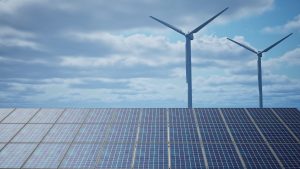
1. Cost Savings: Sustainability-focused reductions in energy consumption and material waste can lead to evident cost savings, providing a competitive advantage to those manufacturers embracing eco-friendly custom roll forming methods.
2. Regulatory Compliance: As environmental regulations become stricter, custom roll forming manufacturers implementing green practices will be better equipped to meet the evolving standards, avoiding potential penalties and ensuring a proactive response to regulatory changes.
3. Enhanced Brand Reputation: Companies showcasing their commitment to sustainability are likely to see a strengthening of their brand reputation, garnering the trust and patronage of environment-conscious customers and with our locations facilitating made in the USA products.
Green Manufacturing Across Industries Through Custom Roll Forming
Custom roll forming supports sustainable manufacturing practices across various industries, highlighting its versatile and eco-friendly nature:
1. Automotive: Custom roll forming enables the production of lightweight, high-strength automotive components designed to improve fuel efficiency and minimize carbon emissions, thereby contributing to the sustainability goals of the automotive sector.
2. Renewable Energy: Custom roll formed components play a vital role in renewable energy infrastructure, such as solar panel frames or wind turbine components, promoting greener energy production and reducing dependence on fossil fuels.
3. Agriculture: Custom roll forming can produce sustainable components for agricultural applications, such as greenhouse structures or irrigation systems, supporting the needs of eco-friendly, resource-efficient farming practices.
The Future of Custom Roll Forming and Environmental Sustainability
The progression of custom roll forming technologies and adoption of Industry 4.0 concepts can propel environmental sustainability within the metal fabrication industry to new heights:
1. Advanced Roll Forming Automation: As custom roll forming technologies improve, manufacturers can expect to see advancements in automation, leading to increased precision, efficiency, and reduced material waste, driving their sustainability endeavors further.
2. Lifecycle Analysis and Product Design: Embracing lifecycle thinking in the product design process for custom roll formed components can ensure their environmental impact is minimized across the entirety of the product’s lifespan, from raw material extraction to end-of-life disposal or recycling.
Sustainable Material Sourcing in Custom Roll Forming
The choice of materials utilized in custom roll forming plays a significant role in promoting sustainability within the metal fabrication industry:
1. Recycled Content: Opting for materials with high recycled content, such as recycled steel or aluminum, reduces the demand for virgin resources, minimizing the environmental impact of mining and resource extraction.
2. Locally Sourced Materials: Sourcing materials locally can help reduce the carbon emissions associated with transportation while also supporting local economies and fostering strong relationships with suppliers and other stakeholders within the industry.
3. Responsible Supply Chain Management: Custom roll forming manufacturers must strive to practice responsible supply chain management, ensuring their sourced materials come from responsible and environmentally conscious suppliers committed to sustainable practices.
Embracing Innovation in Custom Roll Forming and Metal Coating Processes
Innovation in metal coating processes and materials can amplify the sustainability benefits offered by custom roll forming:
1. Eco-Friendly Coatings: Environmentally friendly coatings, such as water-based or low-VOC paint systems, can minimize the environmental impact of metal finishing processes, while still providing excellent performance and aesthetic qualities.
2. Advancements in Galvanizing Techniques: Newer galvanizing techniques, such as hot-dip galvanizing and electro-galvanizing, offer improved corrosion resistance and may be more environmentally friendly compared to traditional galvanizing methods.
3. Powder Coating Technology: Powder coating is an increasingly popular alternative to traditional liquid coatings, offering advantages such as durability, cost-efficiency, and a reduced environmental footprint due to the absence of VOCs and hazardous waste disposal concerns.
Encouraging Collaboration and Knowledge Sharing to Drive Sustainability in Custom Roll Forming
Collaboration and knowledge sharing among stakeholders can help accelerate the adoption of sustainable practices in custom roll forming and the broader metal fabrication industry:
1. Industry Partnerships: Engaging in partnerships with other stakeholders, such as suppliers, research institutions, and industry associations, can facilitate the exchange of ideas and best practices, driving innovation and sustainability within the custom roll forming sector.
2. Global Initiatives: Participating in global initiatives and programs focused on promoting sustainability and responsible manufacturing practices can help custom roll forming manufacturers benchmark their own progress, collaborate with likeminded businesses and align with increasingly expected industry standards.
3. Ongoing Education and Training: Investing time and resources in the ongoing education and training of custom roll forming professionals is essential in fostering a culture of sustainability, keeping employees informed about the latest developments in environmentally responsible practices and technologies.
The Role of Custom Roll Forming in Sustainable Product Design and Development
Custom roll forming can be a valuable ally in the pursuit of sustainable product design and development:
1. Lifecycle Assessments: Performing lifecycle assessments in the development stage can help identify areas for potential improvement in custom roll formed components, ensuring that environmental impacts are thoroughly considered from raw material extraction to end-of-life disposal or recycling.
2. Renewable Energy Integration: Custom roll forming can help enable the integration of renewable energy systems into products, such as solar roofing or wind turbine components, further contributing to sustainability in various sectors.
Custom Roll Forming for Green Infrastructure and Transportation Projects
Custom roll forming can significantly contribute to green infrastructure and transportation projects, supporting the transition to a more sustainable future:
1. Lightweighting: Custom roll formed components can be instrumental in the lightweighting efforts of various industries, especially transportation, resulting in reduced fuel consumption and emissions. Using lighter, high-strength materials in custom roll forming can deliver lightweight components without compromising on performance and safety.
2. Green Infrastructure Solutions: Custom roll formed components are essential in the development of green infrastructure solutions, such as modular green roof systems or sustainable drainage systems, contributing to the reduction of urban heat islands and the effective management of stormwater runoff.
3. Public Transportation: Custom roll forming can play a key role in supporting the expansion of public transportation systems, providing high-quality, lightweight components for buses, trains, and other transit systems that contribute to reducing greenhouse gas emissions and urban congestion.
Embrace Custom Roll Forming for Your Sustainable Manufacturing Success
Custom roll forming presents an effective solution for manufacturers across industries looking to embrace sustainability while maintaining excellence in product quality, efficiency, and performance.
By adopting eco-friendly materials, integrating green practices throughout the production lifecycle, and leveraging innovation and collaboration, custom roll forming can make a significant impact on the journey towards a more sustainable future in metal fabrication and beyond.
Take advantage of the powerful combination of custom roll forming and environmental responsibility by partnering with us. Reach out today to our team at Roller Die + Forming to explore how our expertise in sustainable custom roll forming practices can help you achieve top-tier metal fabrication results, aligned with your business values and environmental goals.
Together, we can shape the future by creating greener products and infrastructure, driving responsible progress, and leaving a lasting, positive impact on our planet.

